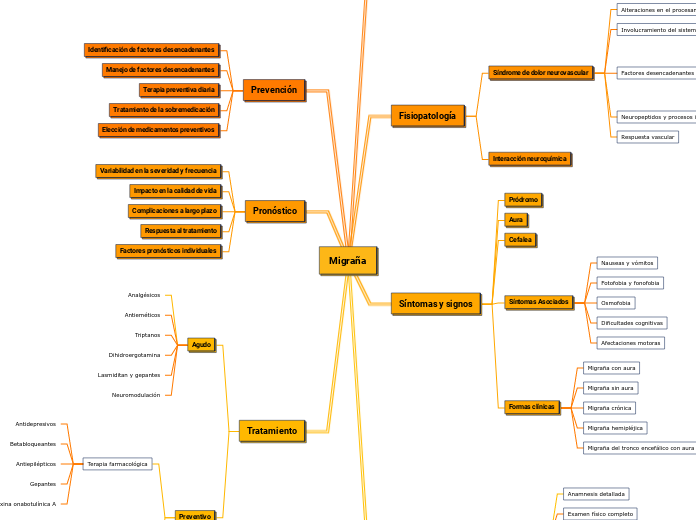por maite cabezas hace 12 meses
91
Migraña
La migraña es una afección neurológica caracterizada por episodios de dolor de cabeza intenso, frecuentemente acompañado de síntomas como náuseas, vómitos, y sensibilidad a la luz y al sonido.

por maite cabezas hace 12 meses
91

Ver más
As the main word in a sentence, the verb will generally describe an occurrence or an action.
Grammatical mood refers to the quality or form of a verb in a sentence. More specifically, mood denotes the tone of a verb in a sentence, so the intention of the writer or speaker is clear.
Estimulación remota
Estimulación supraorbitaria
Estimulación del nervio trigémino
Estimulación del nervio vago
Estimulación transcraneal
Toxina onabotulínica A
Gepantes
Antiepilépticos
Betabloqueantes
Antidepresivos
Conditional verbs are used to create conditional sentences, which express hypothetical or unlikely situations. Conditional verbs can be used in the past, present, or future tense, and auxiliary verbs like can/could, will/would, and may/might are important in forming conditionals
An infinitive verb is essentially the base form of a verb with the word 'to' in front of it. When you use an infinitive verb, the 'to' is a part of the verb. It is not acting as a preposition in this case.
In grammar, the voice of a verb describes the relationship between the action that the verb expresses and the participants identified by its arguments.
A participle is a form of a verb that can be used as an adjective or combined with the verb to be to construct different verb tenses.
A transitive verb will only makes sense if it applies its action on an object.
Factores genéticos
Cambios hormonales
Estímulos sensoriales
An intransitive verb has two characteristics:
1.it is an action verb, expressing a doable activity
2.it will not have a direct object receiving the action
Create sentences with examples!